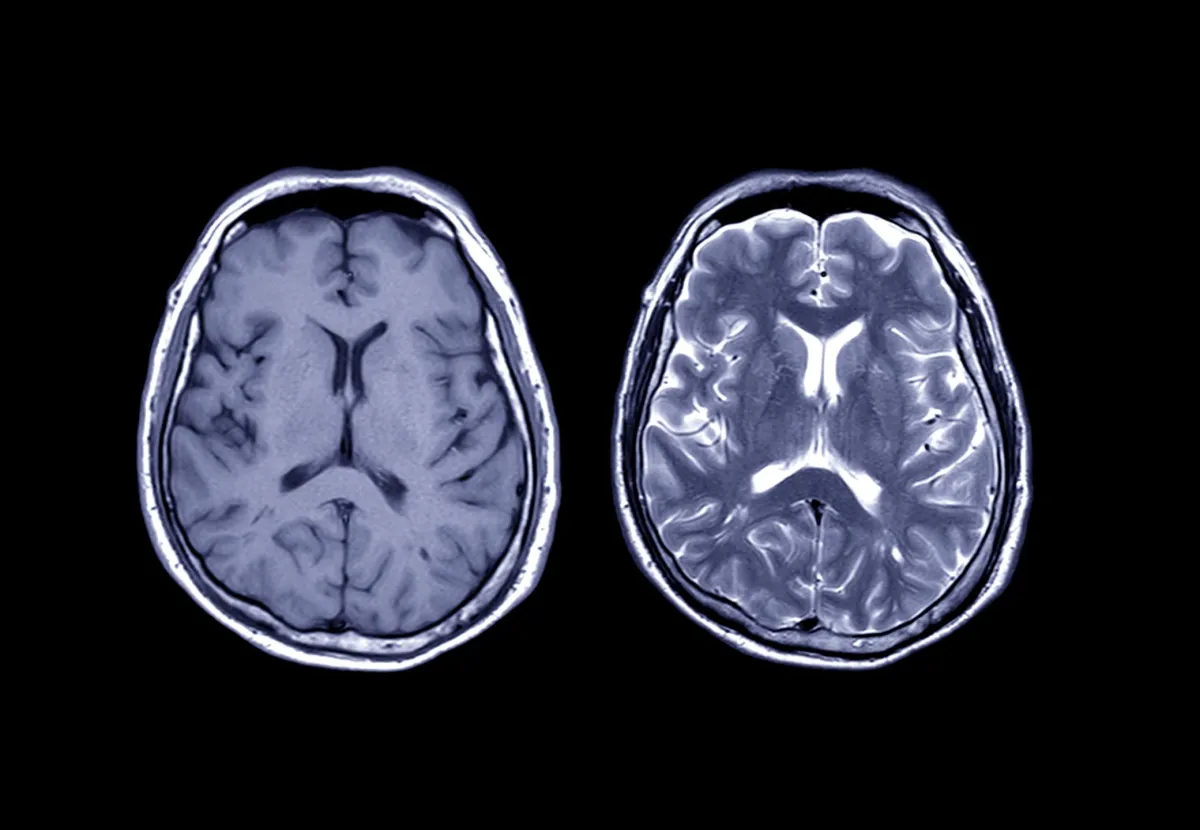
If I have tinnitus, should I get a brain scan?
Many people with tinnitus worry that they may have a brain tumor and request a brain scan. Is having a brain scan in the setting of tinnitus in your best interest?
The brain tumor that many people with tinnitus fear is the acoustic neuroma (also called vestibular schwannoma). Acoustic neuromas are benign tumors that arise from the cells that line the hearing and balance nerve, inside the skull, between the brain and the inner ear. Often, people with tinnitus doing research on the internet read that many patients with acoustic neuromas report tinnitus. This discovery often triggers worry in a person with tinnitus: "Is my tinnitus caused by an acoustic neuroma?"
Although it is true that most people with an acoustic neuroma have tinnitus, is the converse also true? What proportion of people with tinnitus have an acoustic neuroma?
That very question has been evaluated by several clinical research studies. One particularly good study was published by specialists at Duke University in 2015 (Choi, K, et al. Otology & Neurotology 36(10):p 1730-1734, December 2015). They reviewed the histories of all patients who had an MRI scan done for tinnitus during a six year period. Of the 218 patients who met inclusion criteria for the study, only six of them were found to have an acoustic neuroma and all six had significantly worse hearing in one ear. Of all the patients with tinnitus in the setting of symmetric hearing loss or normal hearing (which makes up the vast majority of tinnitus sufferers), not one was found to have an acoustic neuroma.
But some may argue that there is value in having the scan even if the likelihood is low that a cause for the tinnitus will be found. Is there any potential harm in having a brain scan? In fact, the answer is yes.
Much research has documented that having unnecessary scans of the body is not in one's best interest. First of all, these studies may have some risk. CT scans, for instance, are associated with radiation exposure which can increase one's risk for certain cancers. Contrast materials put in the blood during some scans can occasionally cause allergic reactions or damage the kidneys. In addition, frequently physicians discover minor unrelated abnormalities on scans that lead patients down a path of more scans, tests, and procedures (each with some associated risk) done for a trivial anomaly that was never going to cause significant harm.
So for the vast majority of people with typical non-pulsatile tinnitus in both ears, a brain scan is not necessary because the risk outweighs the benefit and it is exceedingly unlikely to find a cause for their tinnitus.
However, there are several circumstances in which imaging should be considered for a patient with tinnitus.
These include:
Unexplained tinnitus in just one ear
Significantly asymmetric hearing loss
Whooshing pulsatile tinnitus
Sudden sensorineural hearing loss
Tinnitus associated with other unexplained neurologic symptoms
Custom HTML/CSS/JAVASCRIPT



